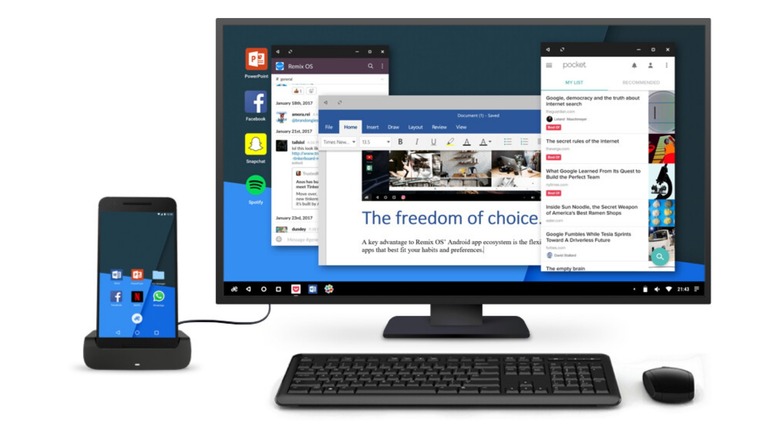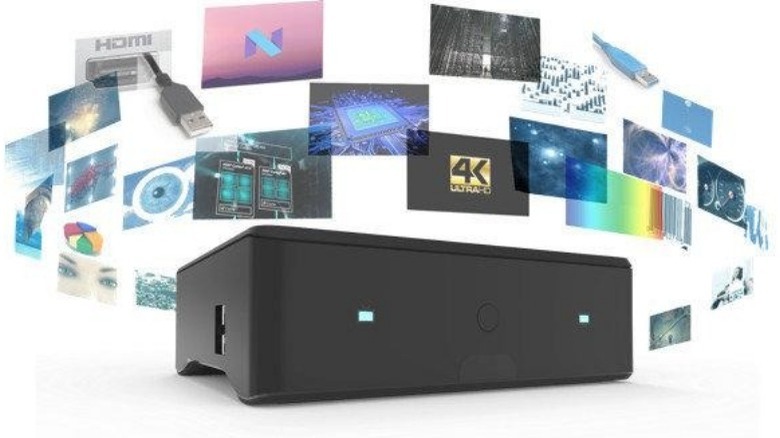Remix OS Discontinued: Here Are Some Alternatives
Another "Android desktop" dream bites the dust and this time with some repercussions rippling throughout the Android community. Although far from being the only such venture, Jide and its Remix OS and devices have been the more stable and more promising one. And so it was somewhat shocking to suddenly hear Jide switching gears, focusing solely on the enterprise and leaving its consumer products to bite the dust. But while Remix OS will live on away from the public's reach, the dream hasn't exactly died and there are others poised to take its place.
Who is Jide and what is Remix OS?
By all accounts, Jide is a very small startup. Based in China and founded by three former Googlers, Jide built its fame, curiously, on a Surface-like tablet that ran a special spin of Android: Remix OS. More than just your conventional custom ROM, Remix OS turned Android into a true desktop experience, complete with floating windows. And while it was hardly the only one that tried that, Remix OS is, or rather was, the most stable and consistent of them all.
In fact, Jide has backed that up with more than just initial tablet. It went to Kickstarter to successfully crowdfund a Remix Mini PC and second time for a Remix IO all-in-one box. Sadly, the latter would never see the light of day.
What we'll never see
With Jide's course change, it is canceling any and all devices, both present and future. That includes the already concluded Remix IO that would have shipped this year. Backers should probably count themselves lucky that the cancellation is from Jide going bankrupt because they are promised full refunds starting August 15.
That isn't the only device we'll never get a chance to see, though. Jide supposedly had another 2-in-1 tablet planned, as well as a true all-in-one PC. But perhaps the most disappointing loss would be Remix OS for Mobile, a.k.a. Singularity. This would rival the likes of Windows Continuum and Samsung DeX, turning any smartphone into a portable desktop. Given how close Jide was to making that possible, it is quite a big loss for the Android community.
Here are some options
That said, there is never a shortage of dreamers as well as makers that have and will turn Android in every direction possible. Android as a desktop is not a distant dream that only Jide was capable of. And while Remix OS still has some advantage over the others, you can still get by with some of the available alternatives to choose from. Here are just some of them.
Samsung DeX
If brand and clout is going to be the basis of success, then Samsung DeX is probably the most promising of the batch. Especially given Samsung has practically committed itself to supporting this feature. Then again, Samsung is also known for abandoning its own headlining features in a heartbeat.
Like Remix OS, Samsung DeX presents users with a familiar desktop interface and can alternately present apps in windowed form or full screen. Unlike Remix, however, DeX is very hardware dependent. That is, at the moment, it only works on the Galaxy S8 and S8+ and only if you dock it into the DeX Station. No other combination is known to work. There are also some instances where apps, like Spotify, refuse to work outright. Hopefully Samsung hasn't yet decided this feature is a no-go and has plans to fix those issues sooner rather than later.
Sentio (formerly known as Andromium)
Andromium has had a troubled past. Its first Kickstarter attempt failed miserably. Its second was met with more success but has yet to start shipping to backers outside of its first batch of brave testers. But where Andromium, now Sentio, differs is that its Superbook "dumb laptop" is really just an accessory. It isn't necessary to use Andromium OS, now Sentio Desktop, itself.
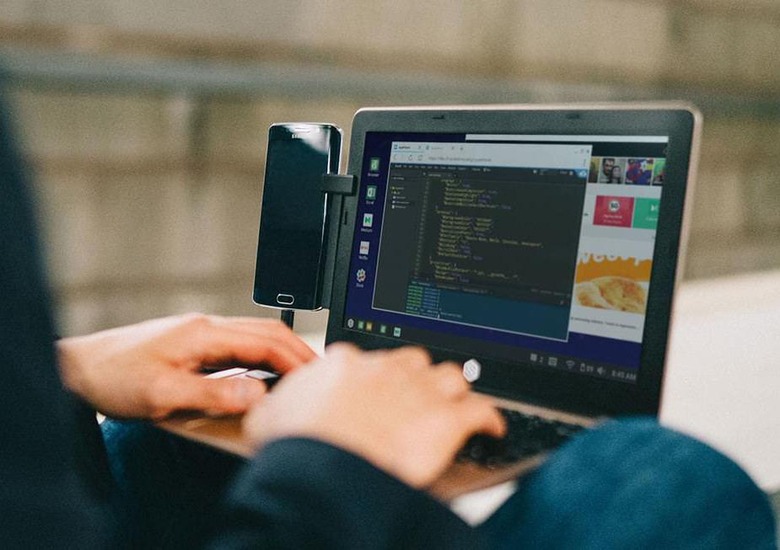
Sentio Desktop is just an app you can download and acts as a pseudo-launcher under specific circumstances, like when an external display is connected, wired or otherwise. The advantage is that any Android device can be turned into a desktop. The disadvantage is that the experience is less seamless. Apps launch full screen and sometimes take over even the panel, except for Sentio's own suite of special floating apps. That said, developers are working on an update that will enable floating windows even for regular apps, provided you're on Nougat.
Phoenix OS
Phoenix is almost a Jide twin. It too is based in China and its Phoenix OS offers almost the exact same experience as Remix OS. Unlike Jide, however, it doesn't have much hardware under its name save for a few OEM partnerships, like with Alcatel and its Xess all-in-one. You can, however, take Phoenix OS and install it on Nexus tablets or x86 laptops. With Jide out of the scene, Phoenix can attempt to fill in the large shoes left by its rival, provided it's interested at all in the consumer space.
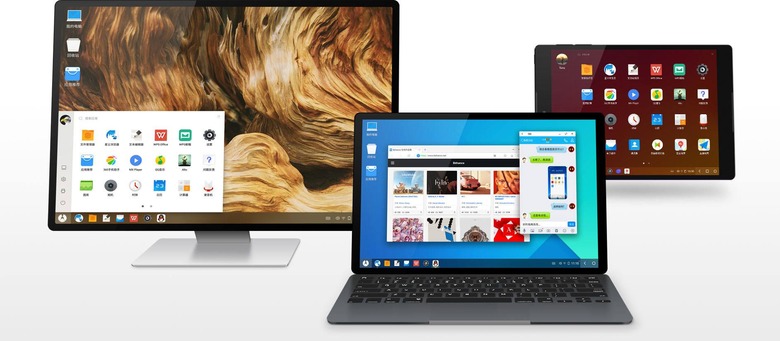
MaruOS
MaruOS is a bit of a stretch as it doesn't turn Android into a desktop. Instead, it actually runs a "full" desktop on top of Android. It's a Linux desktop that not many might be familiar with, but it offers much of the needed functionality and desktop software users might need away from home.
MaruOS has been in development for quite a while but it is still very rough around the edges. The number of officially supported is just two (Nexus 5 and Nexus 7 2013 Wi-Fi), and it requires a wired external display, which requires an MHL adapter that barely anyone uses. On the upside, Maru is an open source project that has an active community that is passionate about bringing the OS to other devices and expanding its capabilities.
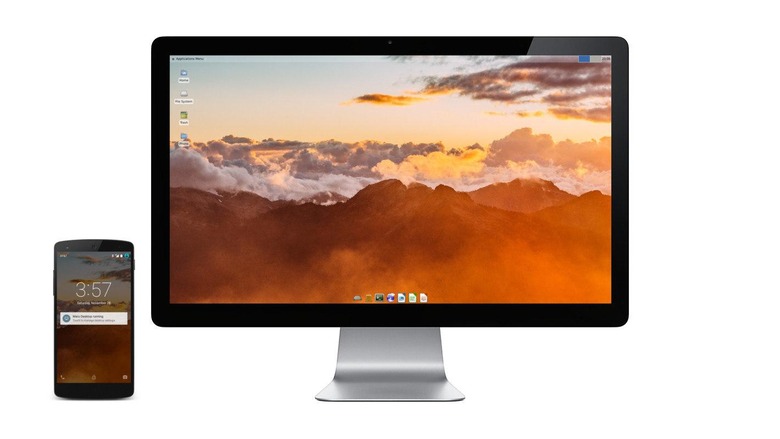
Google Chrome OS
Wait, weren't we talking about Android? Well, if you are looking for an experience designed for desktops, or at least laptops, from the ground up, then look no further than that other OS that Google made. Android app support has long been promised but its first iterations have been rather disappointing. The relative silence on that front is somewhat concerning but with multiple companies invested in it, Android apps on Chrome OS is hopefully a sure deal.
Wrap-up
Some might argue that Android was and probably should never be redesigned for the desktop, but as long as there are believers and those willing to do the work, that "remix" of Android will always be around. The one ray of hope is that Jide hasn't exactly disappeared or folded, so there's a chance, slim as it may be, that it will find a way to do good by the community that helped it build its name and its product for the last three years.
